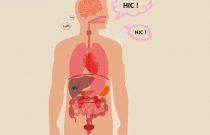What is reflux, What are the symptoms? Why reflux happens? Types and how is reflux treated? frequently asked questions and answers.
WHAT IS REFLUX?
Reflux is the term used to describe the movement of stomach contents back up into the esophagus.
WHAT ARE THE SYMPTOMS OF REFLUX?
The most common symptoms of reflux are heartburn and a sour taste in the mouth.
Other reflux symptoms
Chest pain
Difficulty swallowing
Regurgitation of food or sour liquid
Hoarseness or sore throat
Feeling that food is stuck in the throat or chest
Dry cough
Bad breath
If you are experiencing these symptoms regularly, it is important to speak with your doctor to determine the underlying cause and to develop a treatment plan.
WHAT CAUSES REFLUX?
Reflux is common and can be caused by a variety of factors, including diet, lifestyle habits, and medical conditions. In many cases, simple lifestyle changes, such as avoiding certain foods and drinks and not lying down immediately after eating, can help manage symptoms.
Common causes of reflux include
Eating certain foods and drinks, such as fatty or spicy foods, caffeine, and alcohol
Smoking
Being overweight or obese
Pregnancy
Hiatal hernia, a condition in which the upper part of the stomach bulges through the diaphragm and into the chest
Asthma
Diabetes
Certain medications, such as painkillers, antidepressants, and sedatives
However If you are experiencing reflux regularly, it is important to speak with your doctor to determine the underlying cause and to develop a treatment plan.
REFLUX TYPES
Gastroesophageal reflux disease (GERD)
This is a chronic condition in which stomach acid flows back into the esophagus, causing symptoms such as heartburn and difficulty swallowing.
Laryngopharyngeal reflux (LPR)
This is a type of reflux in which stomach acid flows back into the larynx (voice box) and pharynx (throat), causing symptoms such as hoarseness and sore throat.
Silent reflux
This is a type of reflux in which stomach acid flows back into the esophagus and throat, but without the usual symptoms of heartburn and indigestion. Silent reflux can cause symptoms such as throat clearing, coughing, and hoarseness.
HOW IS REFLUX TREATED?
Treatment for reflux depends on the underlying cause and the severity of your symptoms. In many cases, simple lifestyle changes can help manage symptoms.
Treatment support recommendations
Avoiding certain foods and drinks that can trigger reflux, such as fatty or spicy foods, caffeine, and alcohol.
Eating smaller, more frequent meals.
Not lying down immediately after eating.
Quitting smoking.
Losing weight if you are overweight or obese.
Elevating the head of your bed to prevent stomach acid from flowing back into your esophagus while you sleep.
If lifestyle changes do not improve symptoms, your doctor may recommend medication to reduce stomach acid production or to strengthen the lower esophageal sphincter. In severe cases, surgery may be necessary to repair the esophagus or to remove the part of the stomach that is causing the problem. It is important to speak with your doctor to determine the best treatment plan for your individual needs.
For more information on health and a detailed review of natural treatment methods, also visit the attached category.











Hata!
Yorumunuz Çok Kısa, Yorum yapabilmek için en az En az 10 karakter gerekli